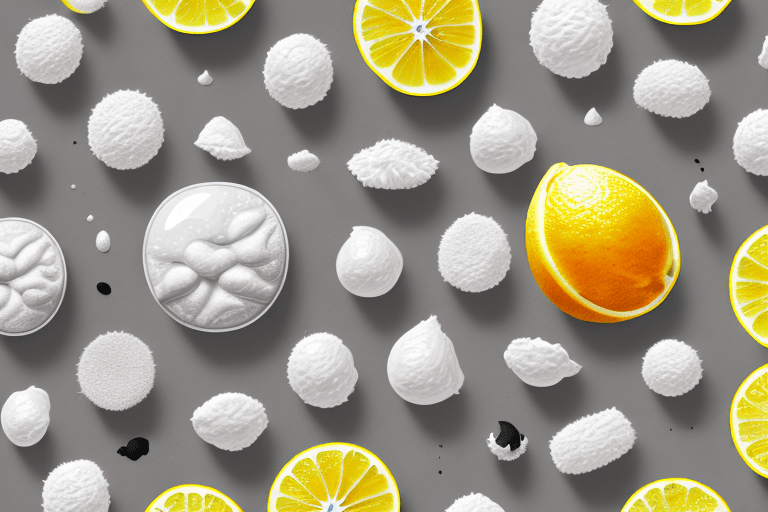Having a bright, white smile can do wonders for your self-confidence. While there are many teeth whitening products available on the market, including our best selling teeth whitening strips, some people prefer to try and whiten their teeth with what they have in hand at the moment. In this article, we will explore seven proven ways to whiten your teeth naturally although the results will not be as effective as our teeth whitening products.
Understanding the Basics of Teeth Whitening
Before we dive into the natural methods for teeth whitening, let's take a moment to understand the science behind it. Teeth whitening works by removing stains and discoloration from the surface of your teeth. This can be achieved through various mechanisms, such as bleaching agents or physical abrasion.
Teeth whitening has become increasingly popular in recent years as people strive to achieve a brighter, more confident smile. A dazzling white smile is often associated with youth, vitality, and good oral hygiene. However, many factors can contribute to tooth discoloration, including aging, genetics, poor dental hygiene, and consumption of certain foods and beverages.
The Science Behind Teeth Whitening
Teeth whitening products contain active ingredients that penetrate the enamel and break down the molecules responsible for staining. These molecules are typically organic compounds found in food and beverages, such as coffee, tea, and red wine. By breaking down these molecules, teeth whitening products can restore the natural color of your teeth.
The active ingredients in teeth whitening products can vary, but most commonly, they include hydrogen peroxide or PAP. These compounds work by oxidizing the stains on the teeth, making them less visible. The concentration of the active ingredient determines the strength of the whitening product, with higher concentrations typically providing faster and more dramatic results.
It's important to note that teeth whitening products primarily target extrinsic stains, which are surface stains caused by external factors. Intrinsic stains, on the other hand, occur within the tooth structure and may require more intensive treatments, such as professional dental bleaching.
The Role of Diet in Teeth Whitening
Your diet plays a significant role in the colour of your teeth. Certain foods have natural whitening properties, while others may contribute to staining. Let's explore some dietary factors that can affect the whiteness of your teeth.
When it comes to achieving a bright and radiant smile, it's not just about brushing and flossing. Your diet plays a crucial role in maintaining the whiteness of your teeth. By making mindful choices about what you eat and drink, you can enhance the natural beauty of your smile.
Foods That Naturally Whiten Teeth
Some foods contain natural compounds that can help whiten your teeth. Incorporating these foods into your diet can contribute to a brighter smile. One such example is strawberries. These delicious berries contain an enzyme called malic acid, which acts as a natural bleach, helping to break down stains and discoloration on the surface of your teeth.
Pineapple is another fruit that can naturally whiten your teeth. It contains an enzyme called bromelain, which not only aids in digestion but also acts as a natural stain remover. Regularly consuming pineapple can help remove surface stains and brighten your smile.
In addition to strawberries and pineapple, apples and celery are also known for their teeth-whitening properties. These crunchy fruits and vegetables have a high-water content, which stimulates saliva production. Saliva plays a crucial role in maintaining oral health as it helps wash away food particles and bacteria that can cause staining. So, by munching on apples and celery, you not only satisfy your hunger but also promote a cleaner and whiter smile.
Foods to Avoid for Whiter Teeth
While some foods can help whiten your teeth, others have the opposite effect. It's important to be aware of the foods and beverages that can stain your teeth and make them appear dull or discoloured.
Dark-coloured beverages like coffee, tea, and red wine are notorious for staining teeth over time. These beverages contain chromogens, which are intense colour pigments that can attach to the enamel of your teeth, resulting in unsightly stains. If you can't resist your daily cup of coffee or tea, consider using a straw to minimize contact with your teeth or rinsing your mouth with water after consumption.
Another group of foods to be cautious of are acidic fruits, such as citrus fruits. While they offer numerous health benefits, the high acidity in these fruits can erode the enamel of your teeth, making them more susceptible to staining. If you enjoy citrus fruits, it's best to consume them in moderation and rinse your mouth with water afterward to neutralize the acidity.
By being mindful of your diet and making smart choices, you can maintain a bright and dazzling smile. Incorporate teeth-whitening foods into your meals and limit your consumption of stain-causing beverages and acidic foods. Remember, a healthy diet not only benefits your overall well-being but also contributes to a confident and radiant smile.
Oral Hygiene Practices for Whiter Teeth
In addition to dietary changes, proper oral hygiene practices are essential for achieving and maintaining white teeth. Let's take a look at some important habits to incorporate into your daily routine.
Proper Brushing Techniques
Brushing your teeth twice a day is crucial for maintaining oral health and whiteness. Use a soft-bristled toothbrush and fluoride toothpaste. Be sure to brush all surfaces of your teeth, including the gum line. Brush in gentle, circular motions and avoid scrubbing too hard, as this can cause enamel damage.
The Importance of Flossing
Flossing is often overlooked, but it plays a vital role in removing plaque and food particles from between your teeth. The build-up of plaque can contribute to discoloration and cavities. Make flossing a part of your daily routine to keep your teeth clean and white.
Natural Teeth Whitening Ingredients
If you're looking for natural alternatives to commercial teeth whitening products, you're in luck. There are several common household ingredients that can help brighten your smile.
The Power of Baking Soda
Baking soda has long been recognized for its teeth whitening properties. Its mild abrasive nature helps remove stains from the surface of your teeth. You can create a homemade toothpaste by mixing baking soda with water, or simply sprinkle a small amount of baking soda on your toothbrush and brush as usual.
Herbal Remedies for Teeth Whitening
In addition to baking soda and hydrogen peroxide, certain herbs can also help whiten your teeth naturally.
The Whitening Properties of Turmeric
Turmeric, a spice commonly used in cooking, has natural whitening properties. Its active compound, curcumin, has been shown to reduce the appearance of stains and improve overall tooth whiteness. You can create a turmeric paste by mixing turmeric powder with water, and apply it to your teeth for a few minutes before rinsing.
The Role of Aloe Vera in Teeth Whitening
Aloe vera is not only beneficial for skincare but also for teeth whitening. Its antibacterial properties help combat plaque build-up, while its natural enzymes remove stains from the surface of your teeth. You can apply aloe vera gel directly to your teeth or use a toothpaste that contains aloe vera as an ingredient.
By incorporating these natural teeth whitening methods into your daily routine, you can achieve a brighter, whiter smile without the use of harsh chemicals or expensive treatments. Remember to consult with your dentist before trying any new whitening methods, especially if you have dental restorations or underlying oral health issues. Here's to a healthier, more confident smile!
Products
Our range of products will help you along your teeth whitening journey, such as Teeth Whitening Strips, Teeth Whitening Kit and Teeth Whitening Powder.
Our biggest advice is finding a product that you are comfortable using and one that you can build into your daily routine as one of the key ways to ensure the effectiveness of Teeth Whitening is frequency of use.

